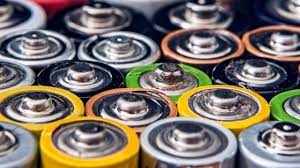Zimbabwe has banned the export of raw lithium from its mines so it can cash in on value addition and stop losing billions of dollars in mineral proceeds to foreign companies.
The new regulation is designed to “ensure that the vision of the president to see the country becoming an upper-middle income economy has been realized,” according to a circular under the Base Minerals Export Control Act published by the Zimbabwean Ministry of Mines and Mining Development earlier this December. The government says it is losing $1.8 billion in mineral revenues due to smuggling and externalization to South Africa and the United Arab Emirates. Gold is the most smuggled mineral. With continued high international demand, Zimbabwe is projected to become one of the world’s largest lithium exporters, with the government hoping to meet 20% of the world’s total demand for lithium when it fully exploits its known lithium resources. Zimbabwe has the largest lithium deposits in Africa.
“No lithium-bearing ores, or unbeneficiated lithium whatsoever, shall be exported from Zimbabwe to another country except under the written permit of the minister,” mining minister Winston Chitando says in the circular. However, according to deputy mining minister Polite Kambamura, mining companies that are building processing plants will be excluded from the directive. “If we continue exporting raw lithium we will go nowhere. We want to see lithium batteries being developed in the country,” he said. “We have done this in good faith for the growth of industry.”
As the world shifts to clean energy, especially electric mobility, lithium has become a critical component in high energy-density rechargeable battery manufacture due to its high electrochemical potential.



